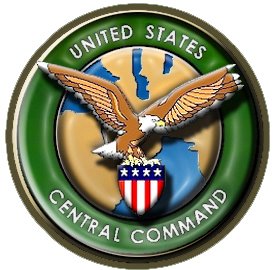Terrorism: A "Controversial" Term
My morning routine includes scanning the headlines of a good 30 news-based internet sites over my first of too many cups of coffee. My closest friends and family have considered executing an "intervention" on my behalf, and have only been prevented from doing so by my reminding them that many of my blog friends probably do twice that. And, so it was this morning that I found THIS piece of news, indicating that Hamas considers the suicide bombing of Israeli citizens eating falafels an appropriate form of self-defense. A little more scanning takes me HERE and HERE where it gets a little more personal. [h/t Israpundit and Captain'sQuarters]
Remembering a diary HERE, and another one HERE, and reading through THIS, and THIS, and THIS, and finally coming across THIS, I decided I had had enough. I decided to see just WHAT the definition of terrorism actually IS, officially.
Going to Wikipedia I find that terrorism doesn't even HAVE a universally accepted definition; that it apparently is in the "eye of the beholder" so to speak. Apparently, if you are a victim of terrorism, you are inclined to define it as:
"indiscriminate," "targeting of civilians," or executed "with disregard for human life."If, however, you were so inclined as to use terrorism to further your cause, it would be considered:
a strategy of using coordinated attacks that typically fall within the time, manner of conduct, and place commonly understood as unconventional warfare.Isn't that nice...
No one should be surprised to learn, again in Wikipedia, that terrorists themselves have a rather kinder, gentler way of defining themselves:
"those accused of being "terrorists" rarely identify themselves as such, and instead typically use terms that refer to their ideological or ethnic struggle, such as: separatist, freedom fighter, liberator, revolutionary, vigilante, militant, paramilitary, guerrilla (from Spanish "small war"), rebel, jihadi or mujaheddin (both meaning "struggler"), or fedayeen ("prepared for martyrdom")."So, as rancher and others have tried to articulate, our friends in the media, perhaps frozen by the lack of a universally accepted terminology, can't seem to call it as us "ill-informed" amateurs see it; Murder.
The notion that the term "terrorism" is controversial is a great indicator for why we are not doing well fighting against it. If one prescribes to the idea that terrorism is a form of self-defense, it becomes easier to explain away capitulating to its demands under the auspices of trying to find a balance in dealing with those who would use terrorism to further their cause(s), or defend themselves against some perceived threat.
I can't believe I have to even suggest what I consider to be patently obvious, but we apparently need to define terrorism before we can EFFECTIVELY fight to stop it. According to THIS very educational and eye-opening thesis written by Jeffery Record for the Strategic Studies Institute of the US Army War College, we have over 100 different definitions for it within our own government. How is that possible? And, while they "seem" similar enough in context, the content variations leave plenty of loophole room for interpretation. [Author's Warning: If you read Dr. Jeffery's work, be prepared-he makes the case that we are ALL terrorists to one degree or the other. Perhaps that case can be made of any who would wage war, but make sure you haven't had too much coffee before you get to reading...]
I am deeply troubled by the "flexibility" of the interpretation and meaning behind the WORD "terrorism", and I am fearful that the fight we are waging against it is severely hampered by whose side you choose to be on in defining it.



0 Comments:
Post a Comment
<< Home